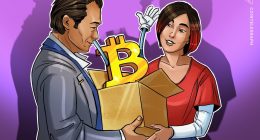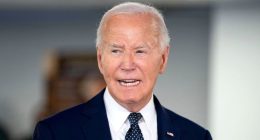The attempted coup that brought Bolivia to a standstill last week was over almost as quickly as it began. But lingering questions about what exactly transpired have exposed bitter political divides that threaten to prolong the crises roiling the country ahead of elections next year.
General Juan José Zúñiga was arrested hours after he led troops to the national palace — whose entrance was breached by an armoured vehicle and heavily armed soldiers — and briefly faced down leftist President Luis Arce on June 26. By nightfall, Arce, who had installed new brass who called off the troops, was thanking a crowd of supporters in downtown La Paz for helping vanquish the plotters.
Arce’s onetime mentor Evo Morales, the charismatic indigenous leader who served as president from 2006 to 2019, initially decried the attempted putsch as an attack on democracy. But now he says he is convinced that it was staged.
“Lucho lied and deceived the Bolivian people and the entire world with this kind of coup or self coup,” Morales said in a speech on Sunday, referring to Arce by his nickname.
“Don’t take sides with the fascists who deny what happened,” fired back Arce, who served as Morales’ finance minster for more than a decade but is now jostling with him for leadership of the Movement Towards Socialism (MAS) party ahead of elections scheduled for next year.
The attempted coup and its messy aftermath have exposed a deepening divide between Arce and Morales that has gripped the country and hindered its efforts to address an acute lack of foreign reserves and falling production of natural gas, a vital export.
“The battle between Arce and Morales is a battle for power, and not the country’s economic model; it’s a battle for control of the MAS party instruments,” said Gonzalo Chávez, a prominent Bolivian economist.
“And much more than the debate over whether it was an attempted coup or a self-coup, it is the rift between the two that is driving so much uncertainty, with people on edge and investors waiting to see how it plays out.”


During Morales’ tenure, the pair stewarded Bolivia’s so-called “economic miracle”, expanding the social safety net with spending underwritten by high commodity prices — particularly natural gas — which lasted until the early 2010s.
But the halcyon days of high growth and poverty reduction are long gone. The IMF predicts growth of just 1.6 per cent this year, the lowest in two decades — apart from a contraction in 2020 as the pandemic descended — as the economy is weighed down by balance-of-payments pressures.
From 2014 to 2024, annual gas exports dropped from $6.6bn to $2.1bn, with production falling by nearly half amid dwindling investment in exploration projects at state-owned major YPFB.
There is also a shortage of dollar reserves, which fell from $15.5bn in 2014 to $1.7bn at the end of 2023. That has led to a bank run last year that was only ameliorated when lawmakers allowed the government to sell a portion of its gold reserves. However, by the end of last year the central bank only had 23.5 tons of gold left, just above the legal threshold of 22 tons.
Protests flared up again this spring with Morales calling on his supporters to block roads as the black market price of dollars climbed well above the official rate of about 6.9 bolivianos. The economic woes have put at risk a gamut of politically combustible subsidies, the currency’s peg to the dollar, and the country’s ability to service debt.
Bolivia owes $110mn in coupon payments in 2024 and 2025 on bonds expiring in 2028 and 2030. In 2026, it will have to pay $333mn, “which could pose a much greater challenge to repayment capacity in the absence of corrective policy measures”, rating agency Fitch said in February, as it downgraded the country deeper into junk territory.
Plans to develop the country’s vast lithium reserves — possibly the world’s largest — are also faltering despite pledges from companies in allies Russia and China to develop the sector. The landlocked country of 12mn, lacking significant production, is yet to join the international market.
In response to the dollar shortage, Bolivia has lifted a ban on the use of cryptocurrencies that had been in place since 2020, Arce said on Wednesday.
Other solutions to the crisis have been hamstrung by the split between the two leftists. The MAS party, founded by Morales in 1997, has a comfortable majority in both houses of Congress but is split between factions loyal to its rival leaders, with policies designed to alleviate the country’s tight finances languishing. Meanwhile, the opposition remains fragmented.

The political rift can be traced to the fallout from the disputed 2019 election, during which Morales resigned from office amid mass protests and pressure from the military. The country’s courts had ruled his bid for a fourth term unconstitutional, though he stood anyway.
After stepping down, Morales fled Bolivia as Jeanine Añez was installed as interim president. Both Morales and Arce maintain the Añez presidency represented a coup.
Morales returned to Bolivia following Arce’s 2020 election victory. Añez was subsequently jailed on charges of sedition. One of Zúñiga’s demands during the attempted coup was for the release of “political prisoners” including Añez.
Public suspicions over the attempted coup’s authenticity, even if discredited, abound in a country that has had about 190 coups or attempted-coups, as well as a number of dictatorships and revolutions, since independence in 1825.
As Zúñiga was arrested he told news crews that he had been acting at a request made by Arce during a meeting days earlier. “It is necessary to prepare something to raise my popularity,” he quoted Arce as saying, without providing evidence.
Arce, who did not respond to requests for an interview, has repeatedly denied the allegations. Zúñiga had been relieved of his command of the army days before the attempted coup for stating publicly that he would block any effort by Morales to return to power.
Still, opposition leaders have made hay with the accusation, even as authorities paraded 17 alleged plotters before television cameras amid a widening investigation. Argentina’s fiery libertarian President Javier Milei has called Arce’s version of events “fraudulent”, prompting Bolivia to recall its ambassador from Buenos Aires.
Armando Ortuño, a Bolivian academic, said the accusations were not credible, though many actors want to believe them.
“The only element that sustains them is the lack of strategy and the succession of botched decisions of the insurrectionists, and the desperate attempts by the government to take advantage of the attack,” he said.
Also Read More: World News | Entertainment News | Celebrity News








